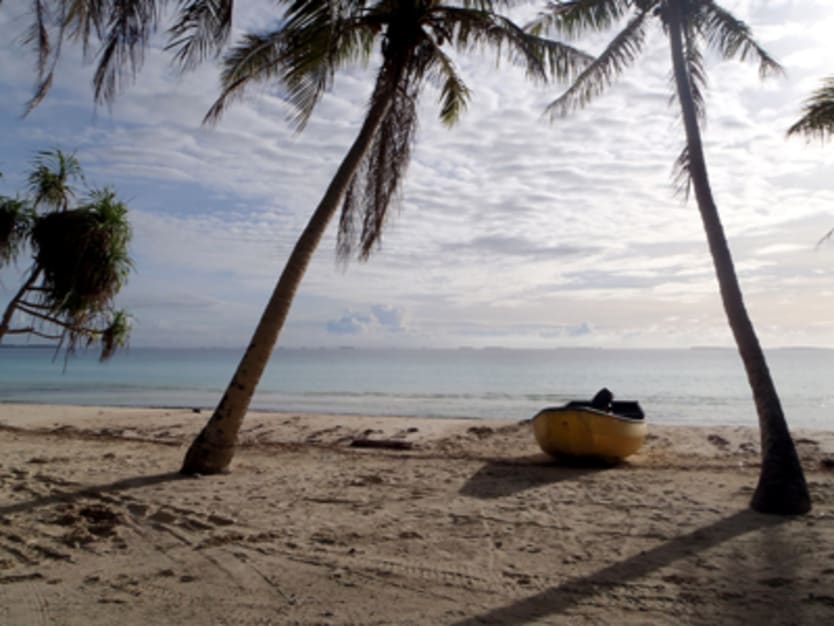
The Marshall Islands have spent the last few months drowning in heat amid a severe drought that prompted a rare international humanitarian intervention in a far-flung Pacific island nation.
Last Friday, the International Federation of Red Cross and Red Crescent Societies released a new funding appeal for CHF803,347 ($857,822) to supply potable water to about half of the over 6,700 people affected by the crisis in the Marshall Islands, on the same day that the U.N. Central Emergency Response Fund pledged $1 million for the International Organization for Migration’s relief efforts in the country.
A prolonged dry spell since April has left over 1,000 households across 15 of the island nation’s 34 atolls without access to safe drinking water, as wells dry up and water tanks run empty under a sustained heat wave expected to last until July.
The drought has also led to other problems such as food shortage caused by parched crops, and health issues like diarrhea and scabies due to impure water sources.
The U.N. Office for Disaster Risk Reduction and the IFRCwarned that the crisis could spread to neighboring states with similar conditions: a territory split into many islands lacking in water supply and difficult to access. IFRC regional disaster management coordinator Ysabeau Rycx told Devex that two of the countries “at high risk” are the Cook Islands and Vanuatu.
The main culprit? Climate change.
Small disasters can wreak big havoc
Citing the 2013 Global Assessment Report on Disaster Risk Reduction published in May by the UNISDR, Rycx said that smaller countries have the “highest proportion of their capital stock at risk” as that is where even relatively small disasters “undermine local development as well as national competitiveness” in an area where “land-use planning has not encouraged disaster risk management.”
“These countries have limited income sectors and the impact of any hazards even on a portion of land will be higher than in any biggest countries. What are scaled as ‘small disasters’ worldwide will very often impact more than 50 percent of the entire country population in the Pacific,” she explained.
Rycx added that the total spending on disaster risk reduction in the Pacific has been low despite the level of risk.
IFRC’s proposed funding for the Marshall Islands will go to purchasing new reverse osmosis units — water purification machines — and maintaining existing units, training of national and community officials in their use, and installing water tanks in homes.
On July 8-11, representatives of Pacific countries will meet at the Joint Pacific Platform for Disaster Risk Management and Pacific Climate Change Roundtable in Fiji to discuss further steps in resolving drought and disaster hazards among small island developing states in the region.
Read more development aid news online, and subscribe to The Development Newswire to receive top international development headlines from the world’s leading donors, news sources and opinion leaders — emailed to you FREE every business day.
